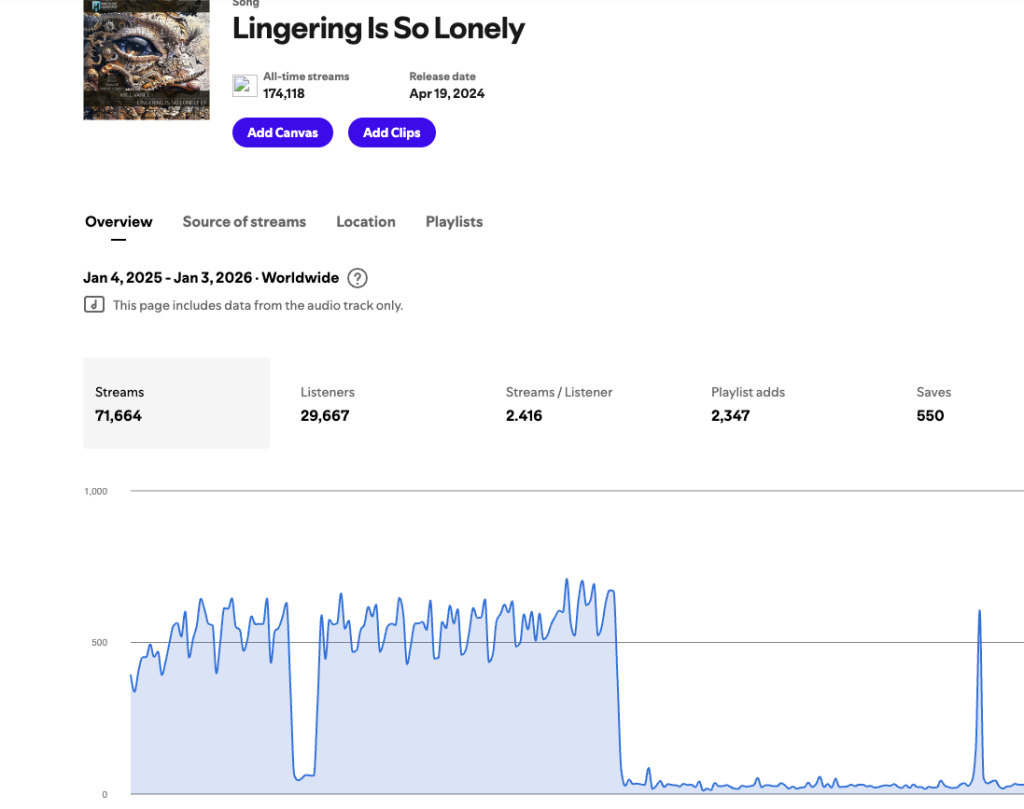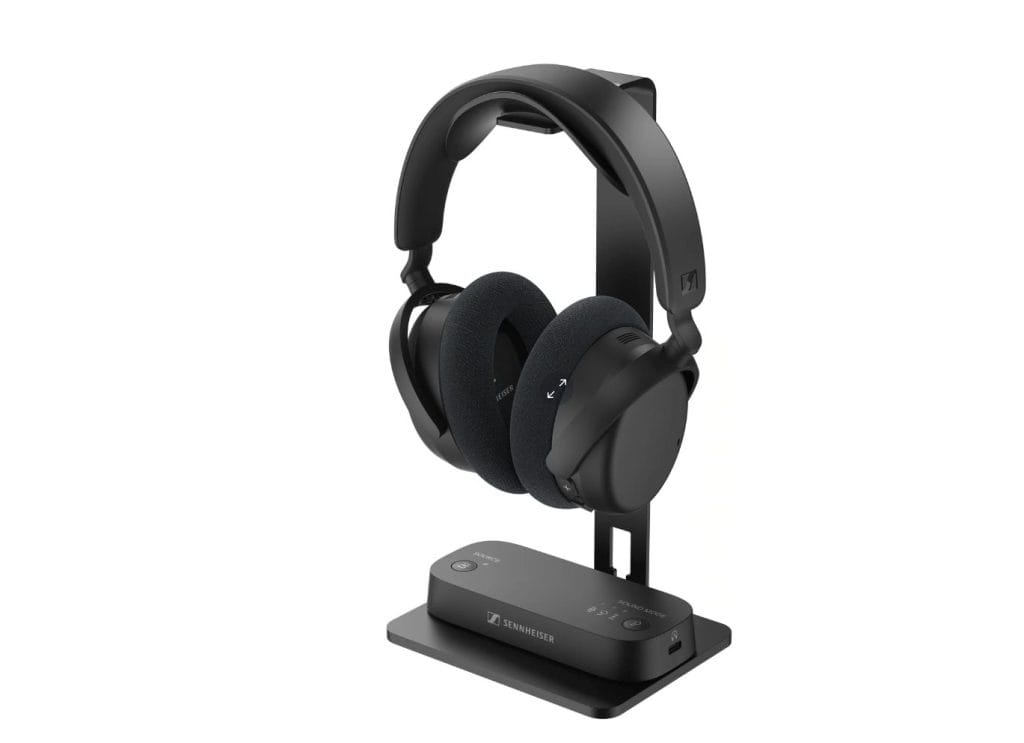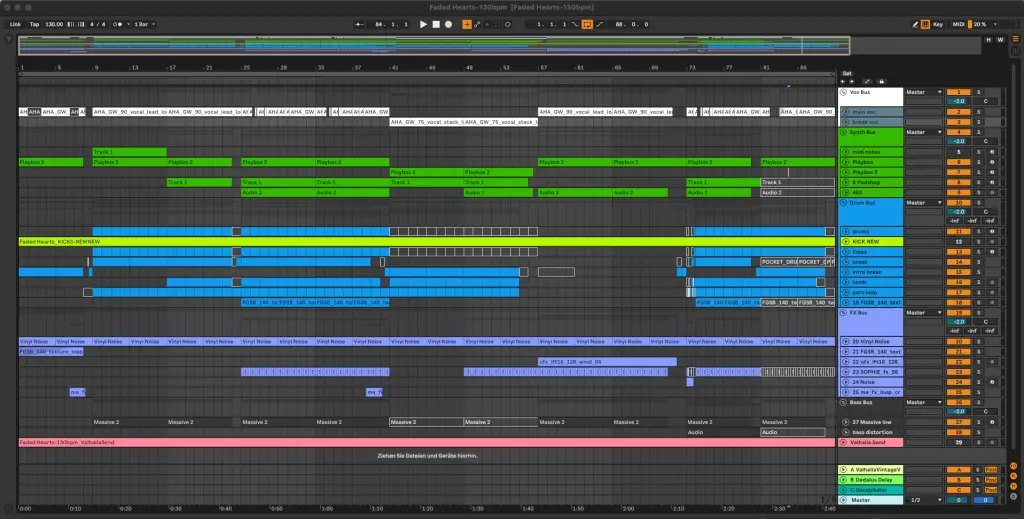When I caught up with Sensu about her latest single, “Faded Hearts,” it felt like everything clicked. Drawing from her time in London, she’s blended UK garage grooves, sharp electronic production, and a real emotional core to create something that grabs you right from the first listen.
Sensu broke down the process, and it’s clear she’s all about balance—letting the tools guide her without losing that raw instinct. Playbox became a spark, kicking off ideas with its unpredictable sound generation, while soothe2 added the polish to make everything sit just right. But what really stands out is how she used these tools to amplify her creativity, not overshadow it. You can hear that clarity and intent in every layer of “Faded Hearts.”
Whether it’s a nod to the city that inspired her or a step into new territory, “Faded Hearts” is proof she’s locked in. Let’s dig into how it all came together.
PLAYBOX
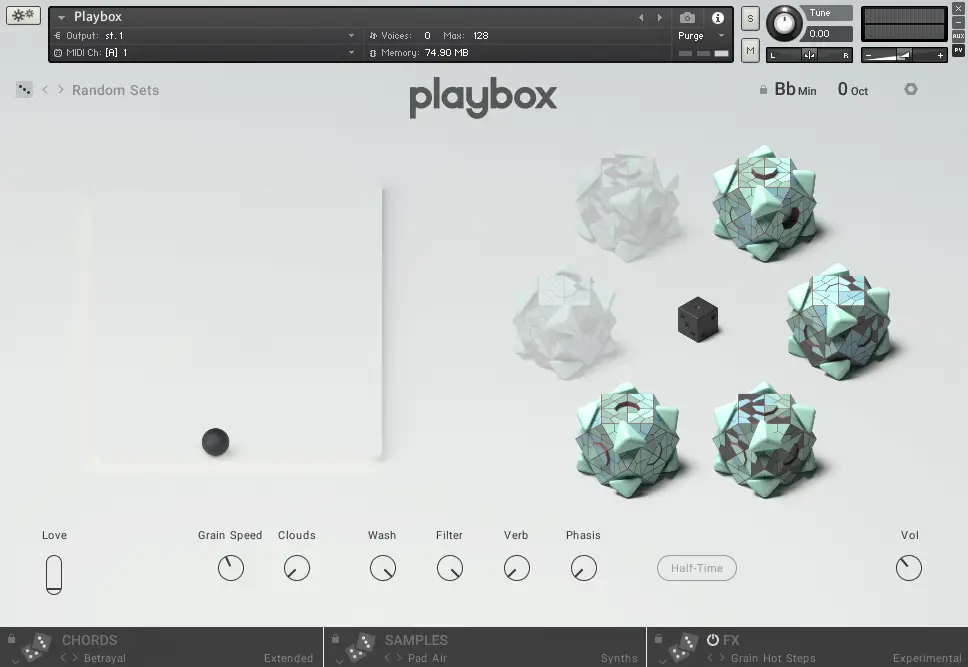
Playbox is an incredibly creative synth plugin that encourages spontaneous sound creation by allowing you to randomly generate sounds with the roll of a dice. It’s perfect for sparking new ideas when you’re starting from scratch or dealing with writer’s block. The randomness can be a fresh source of inspiration, making it a go-to tool when you need a creative boost.
I remember rolling the dice one day, and this amazing pad sound popped up. It felt a bit unconventional as a way to create music, but that’s exactly why I love using Playbox. I instantly connected with the sound and chords, and instead of overthinking it, I started building the track around it. I added some EQ, duplicated the sound, and pitched it down an octave to give it more depth. It became one of the central elements in the track.
Overall, I’d say this plugin is invaluable when I’m feeling uninspired. It pushes me out of my comfort zone and helps me discover sounds I might not have chosen otherwise. A lot of producers, myself included, can be pretty particular about their sound choices, so Playbox is a great way to break through those self-imposed boundaries.
MELODYNE
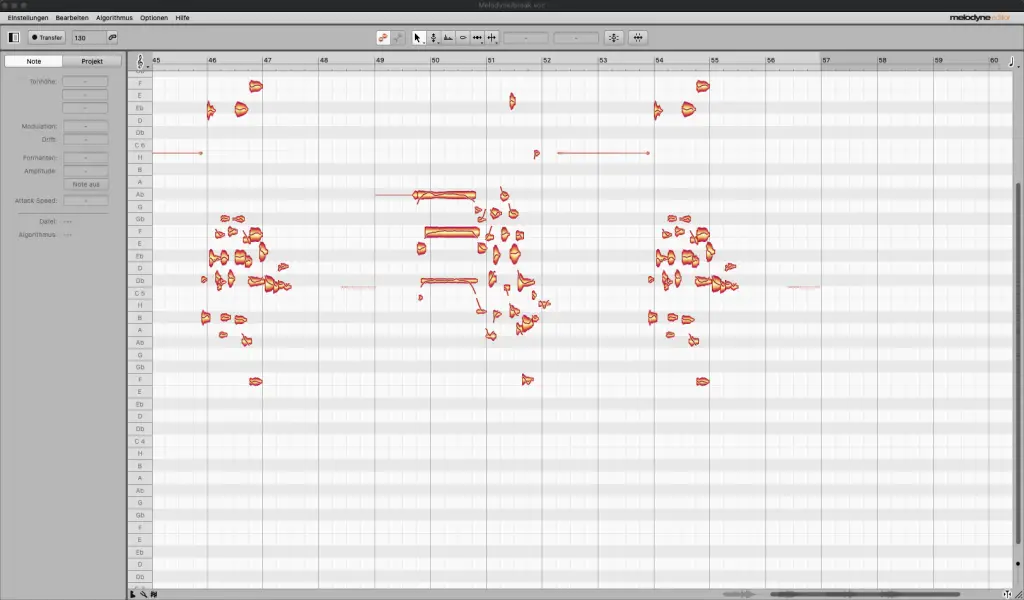
Melodyne is an audio editing plugin used for pitch correction and creative vocal manipulation. What sets it apart is its ability to separate audio into individual notes, allowing users to adjust pitch, timing, formants, and even the dynamics of each note independently. It offers precise control over vocals and instrumental recordings, making it a go-to tool for music producers who want to correct imperfections or experiment with unique sound design.
When I work with vocal samples in my tracks, my goal is to create something distinct and memorable. I achieve this by pitching samples, altering formants, or constructing new melodies from the voices. Melodyne allows me to do all of this with remarkable quality and detail.
If you’re looking to transform vocal samples and make them your own, I highly recommend trying out Melodyne. While it might seem a bit complicated at first, you’ll love the precision it offers – not just for vocals, but also for manipulating synth sounds.
soothe2
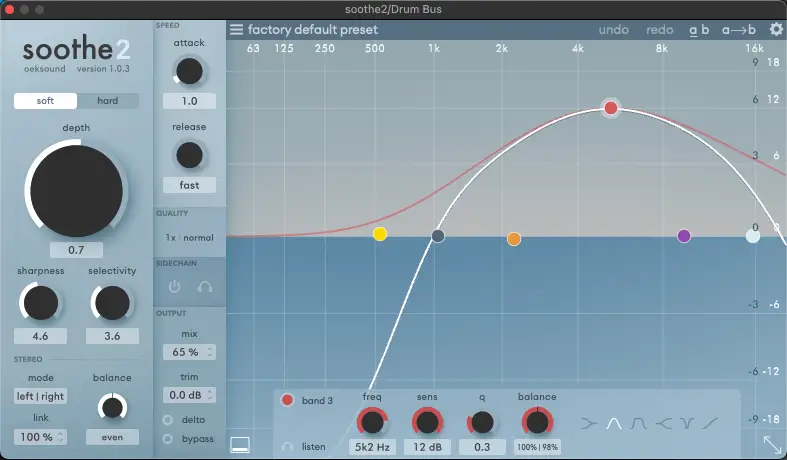
soothe2 is a plugin that helps reduce harsh and unwanted frequencies in your music in a smooth, natural way. It works by automatically finding problem areas and softening them without making the sound dull. Whether you’re working with vocals, instruments, or a full mix, soothe2 makes it easy to clean things up and get a balanced, polished sound. Its simple controls make it quick and fun to use, helping you improve your mix without much effort.
In “Faded Hearts,” I mainly used soothe2 on the drum bus. I already had my go-to drum bus chain set up with some of my favourite UAD plugins for compression and saturation, but adding soothe2 at the end was key to smooth out any harsh frequencies. This extra layer of polish helped the drums sit nicely in the mix while keeping their punch and clarity intact.
soothe2 is an incredibly efficient and simple tool for polishing various sounds in your track. While you can often achieve similar results with EQing, soothe2 has really simplified the entire process for me, helping me get the results I want much faster. It’s become a go-to plugin when I need to clean up frequencies without spending too much time tweaking.
ValhallaVintageVerb
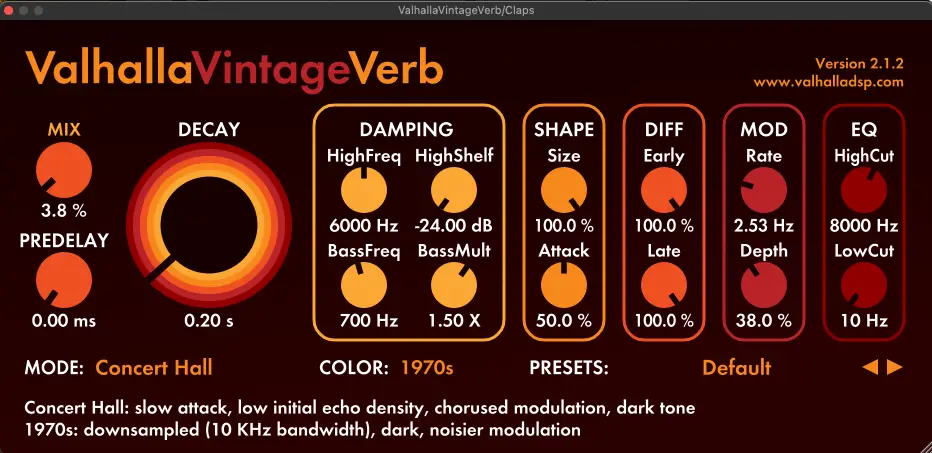
ValhallaVintageVerb is a popular reverb plugin known for its lush, vintage-inspired sound. It offers a variety of reverb modes, emulating the vibe of classic hardware units from the 1970s and 1980s, while still providing modern control over decay, modulation, and EQ. One of its standout features is its ability to shape the character of your reverb, whether you’re going for a clean and modern ambiance or a more nostalgic, retro wash.
You’ll find ValhallaVintageVerb in every single one of my songs. Whether it’s on synths, drums, or used as a send for multiple sounds, I always find a place for it. The warmth it brings is incredible, and I feel like it really adds a unique character to certain sounds, which is something I absolutely love.
I’d highly recommend using ValhallaVintageVerb to add depth and texture to your tracks. One trick I’ve learned is to use it subtly on drums to give them a bit of space without overwhelming the mix. It’s also great for synths – try using a short, vintage reverb to add warmth while still keeping your sounds punchy. For more atmospheric elements, sending multiple sounds through a single instance of the reverb can create a cohesive, immersive vibe that ties everything together.
Quick Fire Tips For Making Music
Tip #1: Trust Your Gut
If your track makes you feel something – whether it’s the urge to dance or a deeper emotional reaction – you’re on the right path. That means you’ve got something special in the works.
Tip #2: Keep It Unpredictable
Create an arrangement that keeps you and the listener hooked. Throw in some unexpected twists and build anticipation to keep everyone engaged.
Tip #3: Drums Make the Groove
Groovy drums are key. Focus on details and add percussion to keep the rhythm tight and infectious. If your tunes make people want to dance, you’re doing it right.
Tip #4: Find Your Sound
If you’re still exploring your own genre, dive deep into your favourite artists. Study their tracks, watch “how it’s made” videos and absorb what sets their sound apart. It’s a great way to find inspiration and develop your style.
The post How It Was Made: Sensu – Faded Hearts appeared first on Magnetic Magazine.




